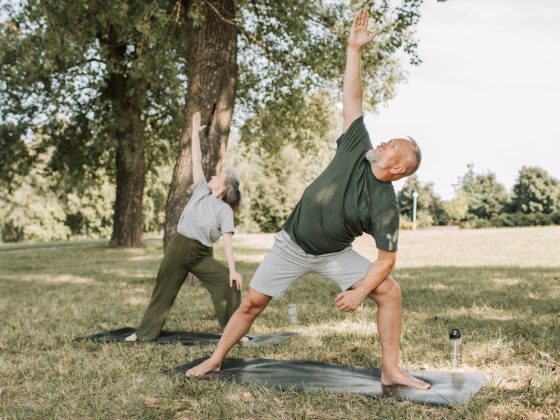Sports games are activities that involve physical exertion, skill, and competition. They can be played individually or in teams, indoors or outdoors, casually or professionally. Sports games are not only fun and exciting but also beneficial for your health, well-being, and social life. In this article, we will explore some of the benefits of engaging in sports games and why you should try to play them rather than spend the weekend on the couch.
Health Benefits
Playing sports games can improve your physical health in many ways. Some of the health benefits of engaging in sports games are:
- Cardiovascular fitness: Sports games that involve running, jumping, or moving fast can increase your heart rate and blood circulation, which can lower your risk of heart disease, stroke, and high blood pressure.
- Muscle strength and endurance: Sports games that involve lifting, throwing, or hitting can strengthen your muscles and bones, which can prevent injuries, osteoporosis, and arthritis.
- Flexibility and balance: Sports games that involve stretching, twisting, or turning can improve your flexibility and balance, which can enhance your coordination, posture, and mobility.
- Weight management: Sports games can help you burn calories and fat, which can help you maintain a healthy weight and prevent obesity, diabetes, and metabolic syndrome.
- Immune system: Sports games can boost your immune system by increasing the production of white blood cells and antibodies, which can fight off infections and diseases.
Mental Benefits
Playing sports games can also improve your mental health in many ways. Some of the mental benefits of engaging in sports are:
- Stress relief: Sports games can reduce your stress levels by releasing endorphins, which are hormones that make you feel happy, relaxed, and optimistic.
- Mood enhancement: Sports games can improve your mood by stimulating the production of serotonin and dopamine, which are neurotransmitters that regulate your emotions, motivation, and pleasure.
- Cognitive function: Sports games can enhance your cognitive function by improving your memory, concentration, and problem-solving skills. Sports games can also prevent or delay the onset of dementia and Alzheimer’s disease by increasing the blood flow and oxygen to your brain.
- Self-esteem and confidence: Sports games can boost your self-esteem and confidence by making you feel proud of your achievements, skills, and appearance. Sports games can also help you overcome your fears, challenges, and failures by teaching you how to cope and persevere.
Social Benefits
Playing sports games can also improve your social life in many ways. Some of the social benefits of engaging in sports games are:
- Friendship and bonding: Sports games can help you make new friends and strengthen your existing relationships by sharing a common interest, goal, and experience. Sports games can also foster a sense of belonging, loyalty, and trust among your teammates and opponents.
- Communication and cooperation: Sports games can improve your communication and cooperation skills by requiring you to listen, speak, and work with others. Sports games can also teach you how to respect, support, and appreciate different perspectives, opinions, and abilities.
- Leadership and responsibility: Sports games can develop your leadership and responsibility skills by giving you the opportunity to lead, follow, and take charge of your actions. Sports games can also instill a sense of discipline, commitment, and accountability in you and your team.
Recommendations for Beginners

If you are interested in the benefits of engaging in sports games but don’t know where to start, here are some recommendations for beginners:
- Choose a sport that suits your preferences, abilities, and goals. There are many types of sports games to choose from, such as soccer, basketball, volleyball, baseball, and running. To feel the benefits of engaging in sports games, you should pick a sport that you enjoy, that matches your skill level, and that aligns with your fitness or health objectives.
- Start with the basics and progress gradually. You don’t need to be an expert or a professional to play sports games. You can start with the basic rules, techniques, and equipment of your chosen sport and practice regularly. You can also increase the intensity, duration, and frequency of your sessions as you improve your performance and confidence.
- Join a local club, team, or group. You don’t have to play sports games alone. You can enjoy the benefits of engaging in sports games when you join a local club, team, or group that offers sports games for beginners. You can also use apps like Javelin Sports to find and join pick-up games, training sessions, and tournaments in your area. Playing with others can make sports games more fun, social, and motivating.
How to Choose the Best Sport Games for You

If you are interested in the benefits of engaging in sports games but don’t know where to start, here are some tips on how to choose the best sport for you:
Consider your physical characteristics, health, and preferences.
The benefits of engaging in sports games include knowing the types of sports games to choose from, such as soccer, basketball, volleyball, baseball, and running. You can pick a sport that you enjoy, that matches your skill level, and that aligns with your fitness or health objectives. You should also take into account your physical traits, such as your height, weight, strength, speed, and endurance, and choose a sport that suits them. For example, a short and stocky person may be better suited for football than basketball, while a tall and lanky person may work better for basketball or track.
Decide whether you prefer a team or an individual sport.
Some people like to play sports games with others, while others prefer to play alone. The benefits of engaging in sports games are that team sports, such as soccer, basketball, or hockey, can offer more social benefits, such as friendship, bonding, communication, and cooperation. However, they may also require more commitment, coordination, and compromise. Individual sports, such as tennis, golf, or swimming, can offer more personal benefits, such as self-esteem, confidence, leadership, and responsibility. However, they may also require more motivation, discipline, and accountability.
Think about how much time you have and what fits your lifestyle.
If you think about the benefits of engaging in sports, it may require more time, money, and equipment than others. For example, golf may be more expensive and time-consuming than running, while skiing may require more gear and travel than cycling. You should choose a sport that you can afford and fit into your schedule. You should also consider the availability and accessibility of the facilities, venues, and resources for your chosen sport in your area.
Choose a sport that you have fun with.
The most important thing to remember about the benefits of engaging in sports games is to choose a sport that you find fun and enjoyable. You are more likely to stick to a sport that makes you happy, relaxed, and optimistic rather than one that makes you bored, frustrated, or stressed. You can also try different sports games and see which ones you like best. You can use apps like Javelin Sports to find and join pick-up games, training sessions, and tournaments in your area. The benefits of engaging in sports are that playing with others can make sports games more fun, social, and motivating.






